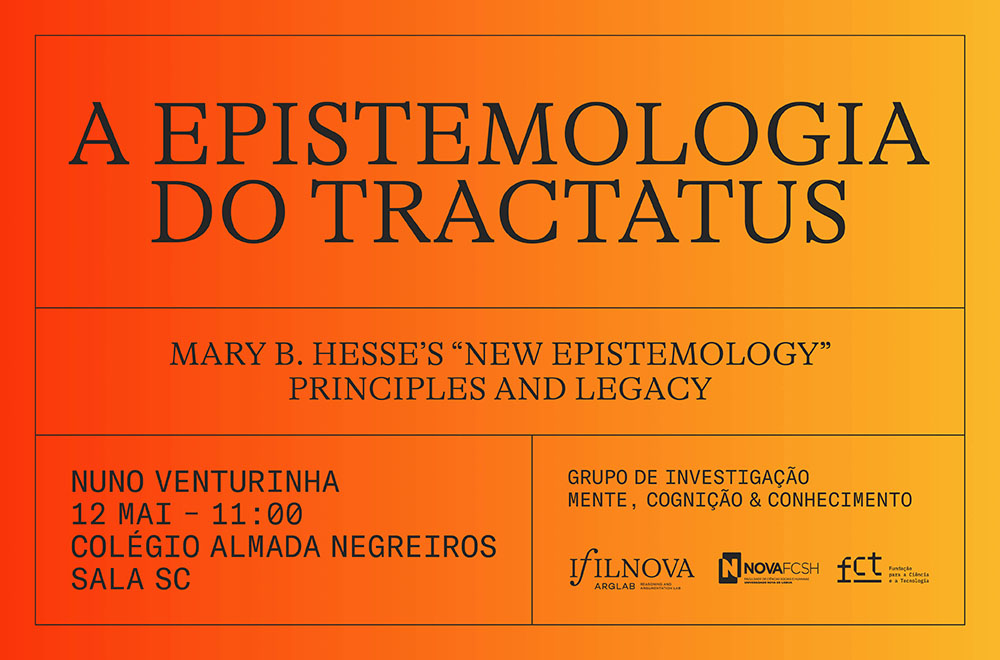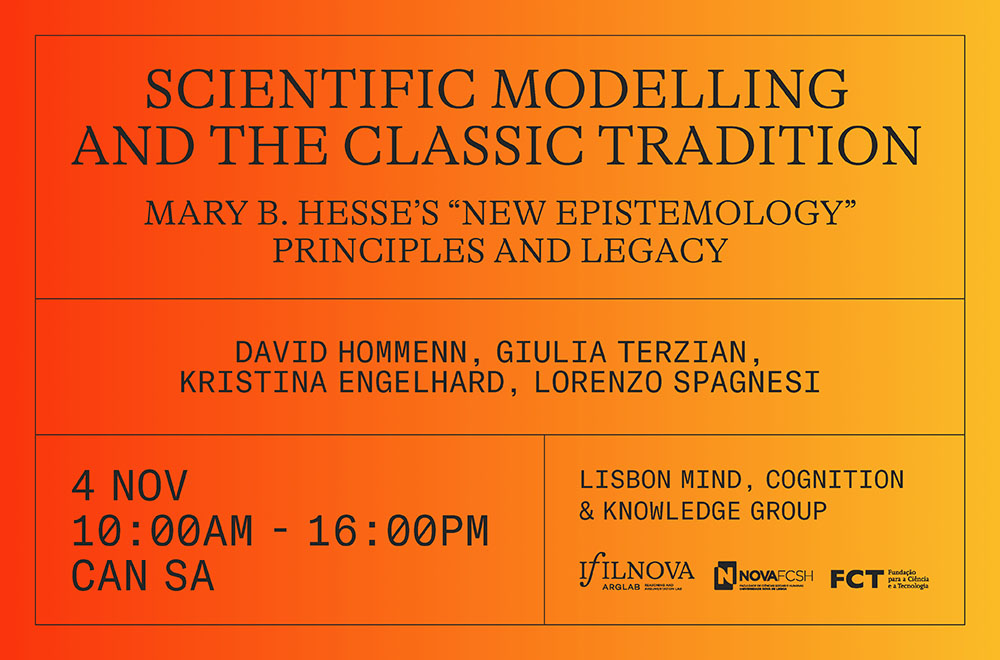Categories
Tag: Wittgenstein
Categories
Wittgenstein’s “Tractatus”
The next session of our research seminar will be in charge of Nuno Venturinha, member of the research team at IFILNOVA.
On the 12th of May, starting at 11:00, he will deliver a paper titled “A Epistemologia do Tractatus”,
The session will take place at Colégio Almada Negreiros of the NOVA University of Lisbon , Room SC.

Categories
Scientific Modelling Workshop
On November 4, 2022, our research project will host a workshop on “Scientific Modelling and the Classic Tradition”, with guests from the Inductive Metaphysics research group.
The meeting will take place at the NOVA University of Lisbon, FCSH (av. de Berna 26 C).
Programme
10AM-12AM – Session 1
FCSH Building B, Room 304
– Kristina Engelhard (Uni Trier), “Modeling natural kinds according to Kant”
– Lorenzo Spagnesi (Uni Trier), “Regulative Idealization: A Kantian Approach to Idealized Models”
2PM-4PM – Session 2
FCSH Building B, Room 304
– David Hommen (Uni Duesseldorf), “A Wittgensteinian View of Models”
– Giulia Terzian (IFILNOVA), “False models can be good models: the case of generative linguistics”
